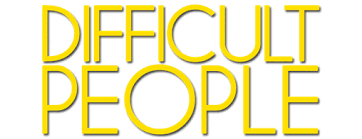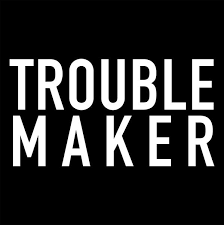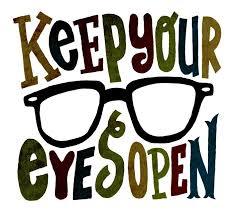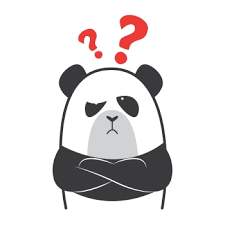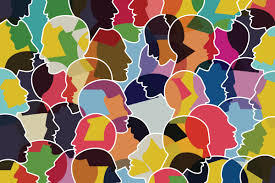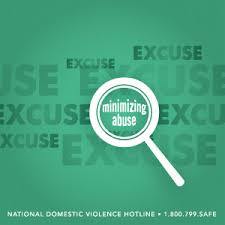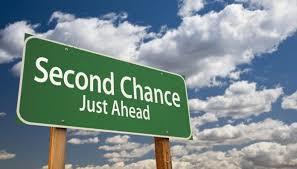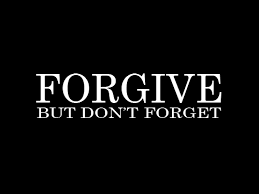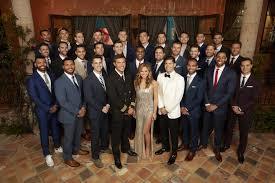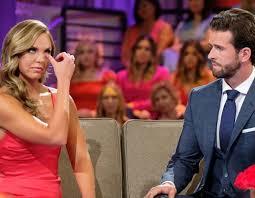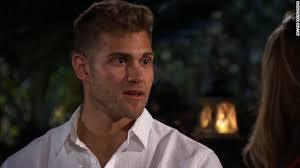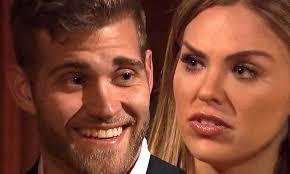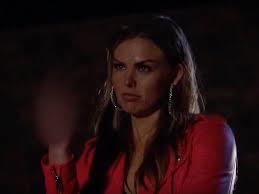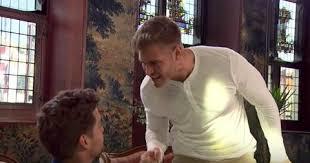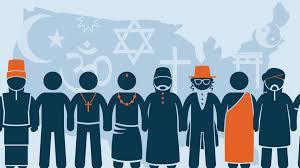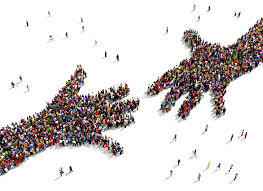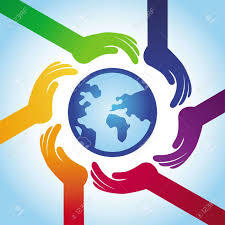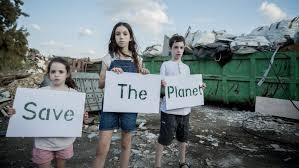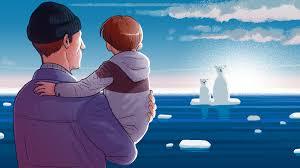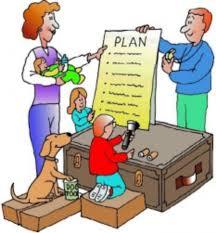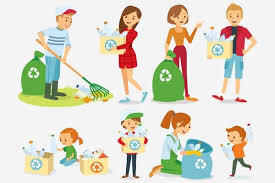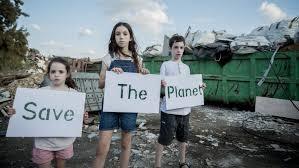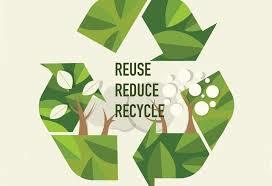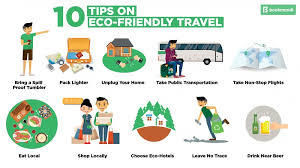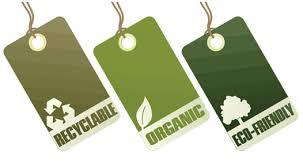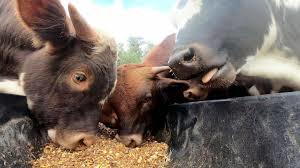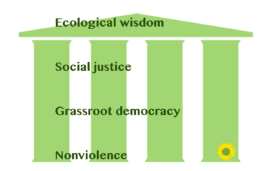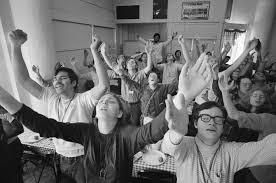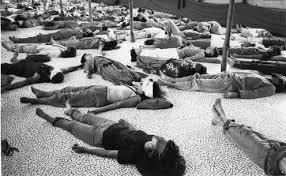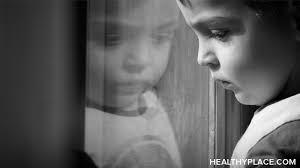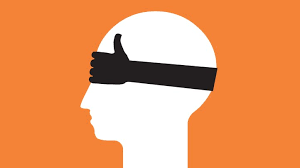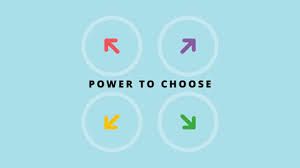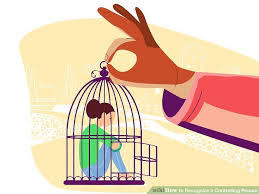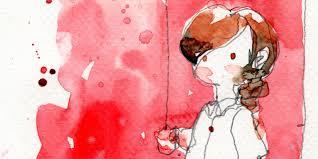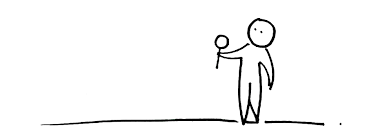Marcia Sirota's Blog, page 23
September 3, 2019
The 7 Relationship Pitfalls of Oblivious People
Relationships aren’t always easy. Sometimes they go smoothly, and we feel like things are effortless between us and the other person, but sometimes we encounter someone who can really make a lot of trouble for us.
Quite often, there are signs of trouble early on. We can protect ourselves from the difficult people if we pay close attention to these “red flags.”
If we don’t pay attention to the red flags that warn us of a difficult person in our presence or if we’re in denial about the possibility that someone is problematic, we’re going to be at a distinct disadvantage when someone like this comes along.
On the other hand, if we’re on the ball and paying attention, we can spot the difficult people at work, at school and at home and we can choose how to handle them, either by steering clear of them or by dealing with these difficult people as strategically and effectively as possible.
Some folks don’t want to believe that there are difficult people among us. They want to believe that everyone is just as nice, reasonable, honest and considerate as they are, even when presented with ample evidence of the opposite. When red flags are waving in their face, they close their eyes and pretend to themselves that everything is fine.
I call these people “oblivious,” not because they’re lacking in intelligence but because they’re willfully ignorant of the dangers lurking at work, school and at home.
These oblivious individuals convince themselves that everything’s okay but they’re putting themselves in peril. When we refuse to acknowledge the possibility that someone is problematic, we’re in danger of being exploited, manipulated and mistreated.
Here are 7 relationship pitfalls of oblivious people at school, home and work:
1. When you’re oblivious, you’re easy to trick, con and manipulate. When you’re unwilling to face the fact that difficult people are out there ready to prey on you, you set yourself up as the perfect victim for these unscrupulous individuals.
Predators are lazy and want to conserve energy. When faced with the choice between someone who’s easy to take advantage of and someone who presents as more of a challenge, most predators will go for the easy mark. Being oblivious makes you the easiest mark around.
2. When you’re oblivious, you smell like prey. When you can’t tell the kind people from the cruel ones, the predators will always seek you out and you’re doomed to be in bad relationships.
Predators are always sniffing out the weakest animal in the pack. When you’re oblivious, you come across as more naïve and vulnerable than the other people around you. To a predator, that makes you smell like prey.
3. When you’re oblivious, you have no voice. If you’re not clear about what’s going on, you can’t speak up on your own behalf.
When you’re in denial and ignoring the red flags, you’re not going to be prepared when a difficult person comes along and tries to mess with you.
If you remain in denial while they’re hurting you, it’s even worse. Either way, not knowing what’s going on makes it impossible for you to tune in to your feelings and your needs or ask for what you want.
4. When you’re oblivious, people will take advantage of you. It’s easy to be exploited when you’re unclear about the other person’s motivations or intentions.
The more oblivious you are, the more attractive you are to those who want to use or exploit people. If you blindly trust people, you give them a free pass to really screw you over.
5. When you’re oblivious, you get no respect. When someone is getting away with mistreating or exploiting you, it’s easy for them to look down on you.
Children are naïve and clueless. When you choose to be oblivious, you don’t come across as an empowered adult. You come across as a helpless child. That garners no respect. If you want to be respected, you have to open your eyes, stand on your own two feet, and ask for what you want.
6. When you’re oblivious, it always gets worse. When you don’t realize all the bad things the other person is up to, you let them get away with anything and everything.
If you insist on denying how badly someone is treating you, you’re giving them a clear message that they can keep getting away with their hurtful behavior. The longer this goes on, the more emboldened this person will become in their cruelty or exploitation.
7. When you’re oblivious, there’s no way out. When you’re in denial around being mistreated, you become helpless to extricate yourself from a bad situation.
If you can’t see what’s going on, you can’t change anything for the better. The starting point to improving your life is facing the truth that there are difficult people out there and acknowledging the red flags that are waving in your face.
These 7 pitfalls are the reasons why it’s so important that you face the truth about what some people are capable of. When you’re no longer oblivious, you’re armed with the necessary tools for dealing with the difficult people who you might come across at home, at school and at work.
Sign up here for my free, monthly newsletter. October is all about developing healthy relationships and avoiding toxic ones.
And click on this link to check out my latest online course, How to Handle Difficult People, Once and For All!
August 21, 2019
7 Tips for Dealing With Difficult People After Labor Day
Difficult people can make life really miserable for us. They can cause us a lot of stress and prevent us from achieving our goals. They’re often tricky and manipulative and adept at getting the upper hand. This is why it’s so important to be able to recognize these problematic individuals and to learn how to deal with them as quickly and strategically as possible.
After Labor Day, when we’re back at school and at work, we’re still bringing some of that summertime relaxation into the new season. We come back to our busy, post-Labor Day lives feeling pretty chill but sadly, the difficult people around us are likely to take advantage of the fact that our guards are down to make more trouble for us when we’re least prepared for it.
Her are 7 ways for you to be aware and prepared for when the difficult people try to mess with you after Labor Day.
Eyes open, always.
No matter how relaxed you are, you should always pay close attention to what’s going on around you. You never know when someone’s going to try to mess with you so it’s essential to stay alert. You can be cool, calm and collected, but never stop paying attention.
Practice healthy skepticism.
This isn’t the same as cynicism in which you think the worst of everyone. Healthy skepticism is recognizing that not everything is as it appears. It’s being open to all possibilities – the possibility that the person across from you is reasonable and supportive and the possibility that they’re a colossal jerk.
Do your due diligence.
Don’t just trust that what the other person is telling you is the truth. Don’t just trust that their behavior is on the up and up. Do your research. Find out the facts. Base your decisions on what is really there; not on what you hope or wish was there.
Don’t assume that everyone is like you.
If you’re an honest, honorable, decent person it can be difficult to imagine corrupt, unethical, sleazy or unreasonable people being in your world. But they’re there. Believe me, they’re there. Some people are like you and some people are really different from you and pretty awful. Practicing steps 1, 2 and 3 will help you with this.
Stop making excuses for bad behavior.
It doesn’t matter why someone is behaving badly. It only matters how their behavior is affecting you. Maybe they had a bad childhood; maybe they have problems today. It doesn’t matter. There really is no excuse for people treating you badly. Focus on how you feel and what you need and what you’re going to do to take care of yourself, rather than trying to justify why someone is messing with you.
No more second chances.
Give the person one chance to show you whether they’re respectful, reasonable, honest and considerate or not. If they fail the test, accept the fact. When you give someone like this a second chance, you only give them another chance to hurt you.
Forgive, but don’t forget.
It’s great to have forgiveness in your heart. Nobody wants to walk around angry, resentful and upset. But, you need to remember what this person has done so that you don’t give them another opportunity to mess with you. Forgive them, sure, but never forget what this person is capable of doing to you.
Sign up here for my free, monthly newsletter. September is about starting the new fall season on the right foot.
And click on the link to check out my latest online course, How to Handle Difficult People, Once and For All!
August 16, 2019
7 Tips for How to Balance Being Busy With Being Self-Aware

The last weeks of summer are winding down. September will be here before we know it and it’ll be back to the old grind and the crazy-busy mindset of the new fall season.
Summer is great because we have the opportunity for quiet time to check in to ourselves and cultivate self-awareness. When we’re chilling out at the cottage, on the beach, in the backyard or at the local park we get a chance to contemplate the things we haven’t had time to think about during the busy year.
Just by taking the time to daydream, we can learn a lot about ourselves, our relationships and our priorities for the coming season.
Unfortunately, it all tends to fall apart after Labor Day because as soon as we get busy again we go into auto-pilot mode and start to lose touch with ourselves. We want to be more mindful but it seems like as soon as the pace picks up we start being more mindless.
A few weeks of self-reflection are helpful in gaining insights for sure, but we can’t expect this increased level of self-awareness to be sustained without any effort throughout the year. Self-awareness has to be practiced on a regular basis if we want to benefit from it throughout the year.

So how do we balance being busy with being more self-aware? Here are 7 tips to help everyone find that balance:
1. Carve out time every day to tune in. Even when work or school or family life is super-busy, it’s essential that you choose to slow down, sit, breathe, contemplate and dream and that you do it on a regular basis. You might think that this down-time is detracting from your productivity but you’d be wrong. You’re investing in yourself when you make time to tune in. Tuning in always helps you to become more creative, productive, empowered and resilient.
A lot of people these days choose to stay busy in order to avoid facing their feelings. This isn’t helped by the fact that our society makes it super-easy not to feel. We’re constantly provided with infinite number of distractions and diversions from our natural emotions, but the more we avoid our feelings, it gets harder and harder to face them. When we avoid our feelings we become disconnected from ourselves and then we can’t know what we need in the moment or in the long-term.
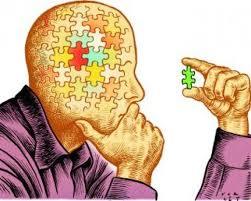
2. Eat your meals mindfully. In a busy day filled with a million things to do it’s easy to get into the habit of eating while standing up or walking around, but that just adds to your stress and impairs your digestion. Mindful eating makes you slow down and it forces you to be in the moment with your feelings of hunger and satisfaction. Mindful eating makes you really taste and appreciate your food and it enables you to eat until you’re full and then stop eating. And, when you practice mindful eating, you’re building your “mindfulness muscle” and making it easier to take this mindful awareness into the other parts of your busy day.
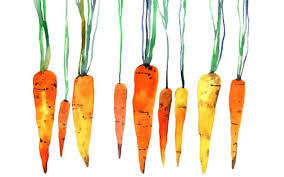
3. Take care of your body. Physical well-being contributes to emotional and psychological well-being (and vice-versa). It’s difficult to be self-aware when you’re feeling sluggish, uncomfortable or unwell. When you exercise, eat more plant-based foods, detoxify yourself and avoid harmful substances (like pesticides, chemical additives and junk foods) you nurture your body and make it so much easier to focus on your feelings and your needs.

4. Get enough sleep. Without enough good-quality sleep, it’s really difficult to be self-aware. When you’re chronically fatigued you’re more distractible, less able to focus, more indecisive and forgetful, more irritable and impatient. When you get enough good-quality sleep, you wake up refreshed and you’re ready to take on the world.
Here are a couple of good sleep hygiene tips: 1- leave the phone in a different room at night to avoid distractions and focus on getting a good night’s sleep; and 2- try to wake up gently after your 7-8 hours of sleep as opposed to not getting enough sleep and having to wake up to the noise of an alarm. Waking up gently gives you the space to remember your dreams and it starts your day in a more self-aware state.
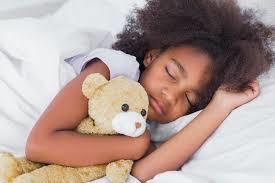
5. Schedule time to play. We become so driven and task-oriented that we forget the advantages of deliberately incorporating play-time into our lives. Play is re-energizing; it helps us to learn about ourselves and it builds social intelligence. Play enables us to release stress and to have a more joyful attitude. It is highly conducive to improved self-awareness and to more happiness.
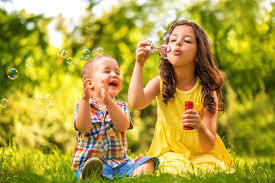
6. Take time to connect with others. Spending time with friends and loved ones has a tremendously positive effect on us, both emotionally and physically. It reduces stress, increases the levels of endorphins – the “feel-good” hormones in our bloodstream – and it improves our cognitive functioning as well. It also supports longevity. When people say that “love heals,” it’s the actual truth.

7. Invest in yourself. Read, learn; embark on creative projects. The more you invest in your own personal growth and development, the more self-aware you’ll be and the more likely it’ll be that you’ll get what you want in life. Taking time to learn and grow helps you become your best self, and this will enable you to live your best life.

Before the summer is over, it might be a good idea to take to heart these 7 tips for improved self-awareness. Before you get caught up in the crazy-busy mindset of the fall season, you can set yourself up for success by integrating these 7 tips into your daily life.
Sign up here for my free, monthly newsletter. September is about starting the new fall season on the right foot.
And click on the link to check out my latest online course, How to Handle Difficult People, Once and For All!
August 2, 2019
How The Bachelorette Just Schooled Us In How To Break-Up
Watching the finale of the Bachelorette this season was a surprisingly inspiring experience. There was the heartbreaking goodbye with Tyler; the joyful – to Hannah, at least – proposal from Jed, and then the news of Jed’s betrayal.
Unfortunately, there had been so many leaks before the show was aired that everyone knew what to expect, so the drama of that particular revelation was diminished. What nobody knew, however, was how Hannah was going to deal with finding out about Jed having lied to her, and that was the real surprise and inspiration of the final show.
Hannah Brown is a 24 year old woman from Tuscaloosa, Alabama. She’s a former Miss Alabama USA pageant winner and a previous contestant on the 2018 season of The Bachelor. She competed in her pageant on a mental health platform, as she’d had her own history of anxiety and depression.
Hannah had spoken openly in previous episodes this season about how she had tolerated being lied to in the past, and she shared in the last episode that she’d finally learned that she didn’t have to put up with this kind of behavior. She said, in the last show, that previously she’d been too focused on holding on to her relationships, but that this is no longer the case.
When Hannah learned, shortly after she became engaged to Jed, that he’d been seeing another woman right up to a few days before he left to film the show, she did the right thing and confronted him. She did it in the best possible way – kindly, honestly and courageously. She wanted to know the facts and she wasn’t going to settle for anything less than the complete truth.
In that conversation, which was filmed and then broadcast on the final show, Hannah discovered that Jed had told this other woman that he loved her on more than one occasion and that he hadn’t broken up with her before coming onto the show.
His excuse was that he didn’t see it as a relationship and that he’d ended it in his own mind but Hannah, rightly, didn’t buy it. Jed admitted that he’d kept the truth from her for fear that he’d lose her, but Hannah wasn’t impressed by this admission. At the end of the conversation, she’d removed her engagement ring and had set it on the table in front of her.
It was impressive to see this young woman being so strong and so clear about what she wanted – and didn’t want – in a relationship.
In this conversation with Jed Hannah made it clear that she couldn’t see herself starting a life together based on a set of lies, and she reminded Jed of how she’d been so open with him about the hurts she’d experienced at the hands of men who’d lied to her in the past. She let him know that his behavior had been unacceptable and that her trust for him has been shaken to its very core.
When the clip of the confrontation ended and Chris Harrison asked Hannah about the status of the relationship, Hannah verified that she had broken up with Jed and that it was over between them. She looked both determined and heartbroken, and one could only feel proud of her and yet sad for her at the same time. She had really loved Jed.
Too often, we see depictions – either fictional or in reality TV – of a person putting up with a partner who lies or cheats because they feel the need to be in a relationship.
Hannah impressed us all when she made it clear that although she would like a man in her life, she doesn’t need one, and that she’s not going to accept the kind of behavior that Jed demonstrated because she knows that she deserves better.
It was even more impressive the way that Hannah handled herself when Jed came onto the final show. She was kind and thoughtful and even as she was telling Jed that after what he’d done, she didn’t love him anymore, you could see that she took no pleasure in doing so.
When the audience began to clap as she was sharing her feelings with Jed Hannah stopped them, saying that this wasn’t an occasion for applause but a sad moment. She told Jed that she wasn’t trying to punish him, and that she was heartbroken as well. Hannah handled an incredibly awkward and painful situation with the utmost of grace and class.
I imagine that it must have been very inspiring for everyone watching to witness Hannah standing her ground and telling the person who’d betrayed her that his behavior had made it impossible for her to love him anymore.
Even as Jed professed his undying love to her, Hannah modeled to the world an incredible degree of self-respect by saying that she needed and deserved honesty and since Jed hadn’t given this to her, it was over between them forever.
When Hannah shared with Chris that she’d learned so much doing the show, including her realization that she’s “hella strong,” nobody doubted her.
The Bachelor franchise is a fantasy-based reality TV show and for that reason, some people don’t take it very seriously. Every now and then, however, despite all the artifice, something real and meaningful happens. These are, after all, real young people with real emotions, who are doing their best to get what they’re looking for.
In this season, I think that what Hannah found was her inner strength. After years of being fearful about being alone, Hannah finally learned that she’s enough, and that if she’s going to be with someone, it’s going to be on her own terms – with the utmost of mutual respect, trust and openness.
It’s surprising for a fluffy reality TV show like this to be such a shining example of the right way to handle difficult relationships. While it’s true that Hannah made a few mistakes with Luke P. she more than made up for it with Jed. Her learning curve on the show was steep.
Ultimately, Hannah showed us all what it looks like to have self-love and self-respect. She modeled grace under pressure and a degree of compassion for the person who’d hurt her (and humiliated her in public) that is rarely seen on the big or small screen.
We can all take a lesson from Hannah on how to deal with betrayal in love. She didn’t lash out at Jed; she asked the right questions and she listened carefully to what he had to say. She gathered all the information she needed in order to make the decision that was best for her.
She didn’t act impulsively. She took her time to decide about breaking off the engagement. She chose not to rub Jed’s nose in his mistakes on the final show, but rather, she was gentle with him. She basically gave us the updated rule book for how to handle this kind of awful, awkward situation.
Hannah Brown, my hat goes off to you. For a young person – heck, for a person of any age – you’ve shown a remarkable degree of poise, self-awareness and compassion, including compassion for yourself. Everyone could learn a thing or two from you.
We thank you for your courage and your honesty; your humor and your wisdom; your perseverance and your openness. We admire you, we stand with you, and we wish you all the very best.
Sign up here for my free, monthly newsletter. September is about starting the new fall season on the right foot.
July 28, 2019
Why The Bachelorette Kept Abusive Luke P. Around For So Long
 The Bachelor/Bachelorette is a bit of an odd TV franchise and this season it got even stranger, with the up-close depiction of a classic abusive relationship.
The Bachelor/Bachelorette is a bit of an odd TV franchise and this season it got even stranger, with the up-close depiction of a classic abusive relationship.
Ever since the show became a vehicle for those chasing celebrity, the Bachelor or Bachelorette of the moment has had one more thing to worry about when trying to decide who gets a rose and who goes home. They not only have to figure out who might be a good match for them, but also who might be on the show for “the wrong reasons.”
This season’s Bachelorette, Hannah Brown, was determined to connect with someone who was sincerely interested in her, but her fear of being duped by a self-promoter might have led her into a different kind of trap, with a contestant by the name of Luke P.
As we watched the season unfold, Hannah seemed oblivious to Luke’s true nature. She always wanted to see the best in him, even when he kept making it incredibly difficult for her to do so.
Luke P. kept behaving like a total jerk. He was super-aggressive with the other men and early on, they all started to hate his guts. He was pathologically dishonest, always saying one thing and doing another, and yet Hannah kept giving him chances.
It was incredibly frustrating to the other men, who sincerely feared for Hannah and wanted this jerk to get what he deserved and be sent home. It was equally frustrating to Hannah, who wanted to make her own decisions and who resented the other men trying to tell her what to do.
Luke P. lingered in the mix for far longer than he should have, often high-jacking the cocktail parties and making it impossible for Hannah to connect with the other guys. He stole the bulk of Hannah’s attention and his antics ate up a good deal of airtime on the show, as well.
In the “Men Tell All” episode, Hannah explained that she’d felt an instant connection with Luke because of their shared faith – something deeply important to her – so she held on to that feeling for too long.
She said that she didn’t listen to all the negative things the other men had to say about Luke because she wanted to make up her own mind. I think that this was a mistake on her part, because her insistence on independence in this case deprived her of essential information.
In the same episode, Hannah explained that she’d been “insecure” when walking into the show, wondering if she was going to meet anyone who really cared for her. She said that when Luke P. declared his feelings for her early on, she took it as a sign that he was sincere.
That was another mistake that Hannah made, because when someone professes to love you a minute after they’ve met you, this is a huge red flag, not a sign that you’ve found “the one.” Instead of being reassured, Hanna should have been terrified.
A typical abuser will profess their love for you almost as soon as they’ve met you. For those of us raised on rom-coms this might sound romantic, but instantaneous declarations of love almost never have anything to do with romance. They’re almost always about the need to possess the other person.
The word, “love” is simply the hook with which the abuser catches their prey.
Luke P. demonstrated a disturbing pattern throughout the entire series, in which he’d say or do something controlling or insensitive to Hannah and then when she got upset he’d back-pedal like crazy.
Hannah, who wanted so badly to give him the benefit of the doubt, allowed him to convince her over and over again that he wasn’t as awful as his behavior demonstrated.
Sadly, many people are willing to give an abuser the benefit of the doubt. They do it because they feel some sort of attachment to this person or because they don’t want to believe the truth about them. They tell themselves that the abuser didn’t really mean what they just said.
For Hannah, it was also because she had found Luke so physically attractive from the start, and considered him “the best kisser” in the group. We should never underestimate the importance of chemistry when it comes to keeping someone around who otherwise shouldn’t be there.
Fortunately for Hannah, she eventually saw the light. When Luke made outrageous demands around her sexuality she got mad, real mad, and she let Luke have it, right between the eyes. The audience breathed a collective sigh of relief that Hannah had finally gained the clarity she’d been hoping for and sent Luke packing.
And then everyone got to see the true extent of Luke’s abusiveness, because if he’d been a normal man, the rage-fueled break-up he experienced with Hannah would have been more than enough to deter him from ever contacting her again; let alone showing up at the next rose ceremony with an engagement ring, as he did.
For Luke, Hanna telling him to “F$%# off” at the end of their date was merely a minor set-back on his path toward achieving his goal.
What everyone should know is that an abuser who says “I love you” after a minute is also typically someone who’ll refuse to take “No” for an answer.
That’s because he sets his eye on the prize and he won’t let go of it. Persistence like this isn’t romantic; it’s contemptuous, as it fundamentally disrespects the other person’s wishes. It has nothing to do with love and everything to do with winning.
Most of the men on the show seemed to care about Hannah and value her as a person. They frequently mentioned how they enjoyed her humor, her independence, her strength and her forthrightness.
Interestingly, as much as Luke said that he loved Hannah, he never commented on any qualities in her that he appreciated.
That’s because Luke didn’t see Hannah; not really. He just saw her as the “prize” to be won. As soon as he was on the show, he fixated on Hannah as the “object” to be obtained and he saw the other men as competitors to be defeated.
Whereas the other guys respected Hannah, wanted the best for her and hoped that if she didn’t choose them, then at least she should be with someone good for her, Luke P. wanted to possess her regardless of the cost to her. His behavior clearly demonstrated that he never once put Hannah’s feelings or needs in the forefront.
Everything Luke P. did was designed either to advance his cause or to get him out of trouble. This isn’t the behavior of someone in love; it’s the actions of a predator, hyper-focused on catching and keeping his prey.
Luke P. was an unusual character for the Bachelor and Bachelorette franchise but sadly, this type of abuser isn’t rare in the real world. In real life, an abusive partner will often get away with his horrendous behavior precisely because there’s no-one there to call him out and to make him stop.
Typical abusers will isolate their partner from their friends, family and support system so that they can keep undermining their partner’s self-confidence and keep on using and abusing them.
Luckily for Hannah, there were millions of witnesses to Luke’s abuse.
It was chilling when we observed Luke P. being a jackass toward the other men and then immediately afterwards, acting like a sad puppy dog in front of Hannah. Being two-faced is typical behavior for a deceitful, manipulative abuser but it was only because Luke P. was on TV that so many of us got a glimpse of how such people behave in real life.
At the end of the “Men Tell All” episode, Hanna expressed how she hoped that her interactions with Luke P. would be helpful to anyone else who might be in a “toxic relationship.” I applaud her sentiment and hope that her viewers might be able to recognize any abusers in their lives and realize that they deserve much, much better than this.
Sign up here for my free, monthly newsletter. September is about starting the new fall season on the right foot.
Why We Need Tolerance, Now More Than Ever
These days, I’ve been thinking a lot about why people are so polarized and so angry and hateful toward one-another. The right wing of politics has tremendous animosity toward the left and vice-versa; race relations are at an all-time low; Poland is lately declaring certain communities “LGBT-free;” and it seems like every other day we read about people harassing or bullying random strangers on the street for reasons of pure intolerance.
Not that long ago, we’d come quite far in developing empathy, compassion and tolerance for one-another. We were getting good at understanding and accepting other people’s differences and living together in peace. Lately, though, we’re more divided than ever. We’re hunkering down in our narrowly-defined camps, fearful and hateful toward “the other.” It’s incredibly disappointing.
The other day I was listening to relationship expert (she calls herself a “student” of relationships), Esther Perel, on CBC Radio One, and she was asked about the issues that are dividing people the most these days. I really appreciated Perel’s response. She said she didn’t think the issues were as divisive as our current lack of tolerance for other points of view.
Perel described how in these ever more uncertain times, many of us are craving certainty, so we cluster together in like-minded groupings and insist that only we are right; only we know the truth; we’re morally superior and the others are wrong, bad, ugly, dirty, defective, and so on.
You can see it blatantly displayed in the tweets of the current US president, who tells members of congress who are US citizens and women of color to “go back where you came from,” and who describes Black neighborhoods in the country as “infested.”
The current US president, like the Nazi leadership in 1930’s Germany, is systematically dehumanizing the “other” – that is, anyone not white, Christian and male – and in so doing, he’s setting the tone for a country-wide level of intolerance toward everyone else’s differences.
In these uncertain times, what we need most is community, not alienation; we need cooperation, not conflict. If we work together in harmony, we’re far more likely to solve our problems than if we fight among ourselves. We need to access the minds and hearts of the best and brightest among us to solve one of the most frightening problems the world has ever faced – global warming.
Hating each-other and refusing to consider different points of view is exactly the opposite approach we need to solve the pressing problems that we face. We need consensus, compromise, and above all open-minded listening.
The divisions that are being promoted by those who are intolerant of other lifestyles or points of view are making it that much harder for us to find the answers that we desperately need.
Perhaps it gives these individuals a sense of security to believe with the utmost certainty that they’re in the right but it’s a false sense of security. Being rigid, dogmatic and closed-minded prevents us from learning and evolving; it prevents us from recognizing our mistakes and correcting them before it’s too late.
Rigidity and dogmatism also leads to “us and them” thinking, and to dehumanizing the other. This makes it easy to hurt or even kill those who are different from us, and we’re seeing a lot more hate crimes and hate-inspired murders of late.
When we feel insecure in the face of enormous problems we need more ideas; not fewer. We need all the potential resources available in order to come to the best possible solution. when we stick around with people who do everything the same way we do, we become like little cults, where no-one is allowed to diverge, and like with most cults, these tend to explode with violence and/or implode into self-destruction.
My call to action today is for everyone to stop fighting with people who are different from them and start to listen to one-another. We don’t have to agree with everything the other person does or says, but that doesn’t mean that we should hate them and want to hurt them.
We need to cultivate more tolerance and acceptance and take advantage of the wealth of knowledge and experience that other people have to share. We need to let go of our fear and hatred of people who aren’t like us and cultivate love, compassion and acceptance.
Being polarized might give us a false sense of security but it actually puts everyone at greater risk. It creates a vicious circle. The more separate we feel, the more fearful we become. The more fearful we become, the angrier we get. The angrier we get, the more violently we behave.
Look at Nazi Germany. Their hatred of “the other” soon overflowed their borders and led to World War Two. Today, with so many nations harboring nuclear arsenals, this type of global conflict could potentially end life on the planet even faster than global warming could.
Some of our leaders are telling us that we need to “divide and conquer,” or that people who look differently or think differently are not to be trusted. History has amply shown that harmony and inter-connection lead to everyone thriving, whereas xenophobia and hatred lead to everyone suffering.
It’s time to let go of our ignorant prejudices and get to know the people around us. We don’t have to adopt their religious or political views, but we can learn from one-another and in the spirit of tolerance and cooperation, we can move forward into a much better world.
Sign up here for my free, monthly newsletter. September is about starting the new fall season on the right foot.
July 2, 2019
5 Ways Parents Can Help Their Kids Deal With Climate Anxiety
Climate change is a terrifying reality and that much more frightening for people who have children. Many parents wonder what kind of world their children are inheriting and they’re unsure how to help their children cope, let alone answer their children’s questions about climate change.
In the wake of the devastating landslides and fires in California, in which numerous celebrities and industry leaders lost their homes and their lives, it’s clear that no matter how wealthy or famous you are, climate change and its associated disasters spare no-one, regardless of money or social status.
Parents who’ve been through a climate-related disaster, whether it was a flood, a fire, a landslide or a tornado, are all too aware of the devastating impact of this type of experience on their children. All of the experts are saying that these events are becoming the norm, not the exception, so how does a parent help their children cope?
Here are 5 ways that parents can help their children deal with climate change anxiety:
One: Parents can explain what climate change is and what causes it, so that children understand what they’re dealing with. Confusion often leads to worsened anxiety, whereas understanding often diminishes anxiety by giving us something tangible we can do to make things better.
Two: Parents can put in place a safety plan in the case of a climate-related disaster, and then reassure their children that they have a meaningful way of dealing with anything that might arise.
Three: On a day-to-day basis, parents can model to their children the kinds of habits that will benefit the environment, such as avoiding the use of single-use plastics; recycling and reusing household items; reducing waste by accumulating fewer possessions; adopting alternative methods of transport; composting food products, diapers and animal waste; choosing to use non-toxic, biodegradable household and personal cleaning products; eating organic and cutting back on the consumption of red meat (which uses enormous amounts of land and water).
Four: Parents everywhere can make an annual spring project with the kids, planting pesticide-free flowers and shrubs in the garden or on the balcony that will attract and feed local birds, bees and butterflies, so that the earth’s pollinators have a better chance at survival.
Five: Parents can get involved in environmental causes and encourage their children to take up social activism against climate change. People always feel less anxious and more empowered when they take positive action toward a goal. Children have plenty of energy and enthusiasm to bring to the cause and by being involved in positive change, they’ll be less likely to feel helpless or overwhelmed, and more likely to improve things for generations to come.
Sign up here for my free, monthly newsletter. August is all about making better choices in your life.
Childhood abuse can often lead to a pattern of abusive relationships in adulthood. For more insights and tools for coping, check out my new online course, “How to deal with difficult family members, once and for all.”
June 23, 2019
7 Ways to Deal With Your Climate Change Anxiety
Many of us are feeling pretty anxious about climate change these days. The situation is confusing and overwhelming and we don’t know what to do. Anxiety is a state of feeling helpless in the face of frightening possibilities, so the way to deal with anxiety, and specifically climate anxiety, is to take measures that will cumulatively make a difference.
Here are my 7 ways to cope with climate change anxiety:
Make small but meaningful changes for yourself and your family: There are little things that everyone can do every day to help the environment. You can give your kids their lunches in reusable containers and stop using disposable straws and single use plastics that end up polluting our waterways and killing off wildlife.
You can recycle more conscientiously and reuse things that you previously would have thrown away. We go through an enormous amount of toilet paper every year and it’s decimating our boreal forests, which are a source of the oxygen we need to breathe. You can try to limit the amount that your family uses every day.
Think about how you get around: Fossil fuels are a huge contributor to climate change. You can use public transportation instead of driving to work, and you can have your kids take their bikes to school. Consider investing in an electric vehicle. Also, you can choose to walk to the corner store and go on more local holidays, rather than fly long distances.
Stop being a consumer and start being a contributor: We buy so much stuff that we don’t need and barely use. If you were to think twice before making a purchase, it would be good for your wallet as well as the planet. We’ve accumulated so much garbage from our compulsive consuming that there’s less and less place to put all the waste. When you think before you shop, you create less waste and you save the green spaces needed for growing food and maintaining woodlands.
Think about how you dress yourself and your family: The fashion industry is a huge polluter due to the manufacturing process for clothing and the constant throwing out of perfectly good clothes. You and your family members don’t need to buy a whole new wardrobe every season. You don’t need 6 pairs of designer jeans. Think about buying gently used clothing, ecofriendly items, or vintage pieces and consider holding on to items if they’re still wearable.
Think about how you feed yourself and your family: Pesticides cause an enormous amount of damage to birds, bees and butterflies – the creatures that pollinate our food. Pesticides are also extremely harmful to our health.
For your family’s welfare and for the survival or our pollinators – and therefore our food supply – choose to eat organic, as much as possible. Also, the less beef, lamb and pork you eat, the more water and land you preserve, as it takes many, many more acres of land and many more thousands of gallons of water to raise a food animal that will give you the same exact nutrients as plant crops will.
Think about how you clean: We dump untold gallons of toxic cleaners into our bodies of water every day. If you switch to non-toxic, biodegradable cleaners for your home, your dishes, your clothing and your body, you’ll spare your own and your family’s health and you’ll protect the planet.
Think about whom you elect: The politicians whom we elect decide on the policies that will make all the difference in the next decades. We’re in a time crunch and every decision that’s made by our leaders will have an enormous impact on the future of our planet and the survival of our children and the generations to come.
It’s imperative that we elect politicians who have a green agenda and that we suck it up and make the necessary sacrifices, including paying a carbon tax, to ensure a future for the planet, for our loved ones and for ourselves. If we cheap out now, or if we forget that climate change is the most important political agenda of our times, there might not be a future for anyone.
Sign up here for my free, monthly newsletter. July is all about personal and professional empowerment.
Childhood abuse can often lead to a pattern of abusive relationships in adulthood. For more insights and tools for coping, check out my new online course, “How to deal with difficult family members, once and for all.”
May 30, 2019
Why Do So Many Adults Join Cults?
A lot has been written about the kinds of people who choose to lead a cult. Like Charles Manson, Jim Jones or Sun Myung Moon, these are power-crazed narcissists and sociopaths, highly invested in manipulating and controlling others to do their bidding. It’s not enough for these individuals to have personal power; they’re compelled to have others bend to their will.
But what causes a seemingly normal person to cast aside their autonomy and allow a charismatic stranger to tell them what to think and what to do? Cult followers give up their money and personal possessions to the leader; they abandon their family and friends; they willingly offer their bodies to the leader, allowing themselves to be married off, impregnated, or literally, to “drink the Kool-ade.”
Cult followers – whether religious, political, or survivalist – are so in the thrall of their leaders that tragically, the news often contains stories of how these followers are willing to die if that’s what their leader directs them to do. It seems incomprehensible, when you take a step back and look at it; especially when you consider that these were once people with spouses, houses, careers and full, active lives.
In totalitarian states, people fight tooth and nail to free themselves from the bonds of oppression, but adult cult members join up willingly and gladly give away their voice and their freedom of choice.
The reason why people join cults:
I’ve concluded that that there’s one main psychological reason that could explain why people are so willing to give up their personal power and autonomy and allow some authoritarian bully to do their thinking for them. It all comes down to wanting to be parented.
The adult cult follower could be any age, but if they carry deep emotional wounds or unmet needs for love and care from a hurtful or neglectful childhood, they might harbor an unconscious but powerful desire to be parented today.
If a child grows up without receiving all the love, nurturing, protection and support that they need, they can become adults who carry unconscious emotional wounds. The person is compelled to be healed, but most often, they aren’t aware of these wounds or the fact that they’re driven to find healing.
When bad things happen to us in childhood, it’s hard to recognize them for what they are because as children, we have no basis for comparison. Neglect and abuse might feel bad, but a child can’t see that these things shouldn’t have happened, since it’s all that they know. When they grow into adults with emotional wounds, they can’t recognize the fact that they’ve been hurt and that the hurts have come from experiences in their past.
The reason why people are in denial of hurtful parents:
Even when someone goes for counseling for an emotional problem or addiction, they could have a knee-jerk denial with regard to hurtful or neglectful parents. This happens because it’s painful to face such a truth. Individuals with emotional problems don’t want to associate their symptoms of anxiety, depression, low self-esteem or addiction with the way that they were parented.
Many adults turn to addiction to fill up an inner sense of emptiness, or to distract or numb them from their emotional pain. They don’t connect their symptoms with their past experiences so they don’t realize that this is why they’re addicted. Sadly, this is a significant reason why so many people fail to overcome their addictions. If we don’t understand the cause of the problem we won’t be able to find a solution for it.
Many people who didn’t receive the love and care the needed as a child will become people-pleasers in their adult lives, believing that if they’re nice, accommodating and helpful that someone will finally give them the approval and support they so desperately crave. Again, all of this happens on an unconscious level.
Some people go even further to deal with their unconscious inner wounds. They join a cult. The appeal of a cult for these individuals is that they finally get to be parented. The problem with being parented as an adult is that it’s completely inappropriate.
When we’re little, we’re incapable of making most of our own decisions, so we need a grown-up who loves us and wants the best for us to make these decisions for us. As we grow older, our parents should be giving us more and more autonomy and decision-making ability, so that we grow up to be confident competent adults, able to run our own lives.
Why adults need to think for themselves:
As adults, it’s never a good idea to have someone else making our decisions for us. Unless the person truly loves us and wants the best for us, it’s too easy for this other person to prioritize their own agenda and put their needs ahead of our own. In the case of cult leaders this is the rule, rather than the exception.
And even if the other person truly loves us and cares for us, normal healthy grown-ups don’t want to make all the decisions for another adult. They want to be with an equal; someone who’s capable of making their own choices, as opposed to a passive, dependent person who expects them to be in full control.
As adults, we need to take responsibility for ourselves, and if we didn’t get the right kind of parenting when we were kids, having someone parent us as adults won’t fix the problem. In fact, it’s doomed to backfire.
When we abdicate our adult autonomy and let someone else do our thinking and deciding for us, instead of healing our deep inner wounds, it makes them worse. In order to heal, we need to be empowered, not helpless. We need to take responsibility for ourselves and discover our own innate ability to love and care for ourselves. This is the only way for us to heal.
Also, if we give away our decision-making ability to another person, the likelihood is that they’ll abuse the privilege. Instead of being loved and cared for the way we always wanted, we’ll be taken advantage of, exploited and abused. Or, if the other person happens to be normal and healthy as opposed to a manipulative, toxic narcissist, they’ll be confused with or resent our demands for them to baby us.
Normal, healthy people don’t want to control us:
The truth is that normal, healthy people don’t want to control us and they won’t want to take care of another adult, so the only people who’ll promise to care for us (if we abdicate our personal autonomy) is the users and abusers out there.
The truth is that if anyone who is all too happy to take over our decision-making capacity is showing us who they really are. The truth is that their willingness to parent us is a sign that they’re a toxic narcissist who really only wants to control and exploit us.
This is why cults are destructive and dangerous. It’s because the only people who’d want to lead a cult are hurtful narcissists and sociopaths who are taking advantage of the emotional needs of wounded people who harbor the unconscious hope to be parented again.
Sign up here for my free, monthly newsletter. July is all about empowerment.
Childhood abuse can often lead to a pattern of abusive relationships in adulthood. For more insights and tools for coping, check out my new online course, “How to deal with difficult family members, once and for all.”
May 28, 2019
Why Adult Children of Abusive Parents Live in Denial
For many, many human beings, it’s painful to see the truth about our loved ones, and most especially about our parents and our partners, so we choose instead to go into denial.
Denial is a powerful human defense mechanism. We deny that the pain in our chest is serious because we don’t want to believe that we have heart disease. Unfortunately, when we deny a problem, we can’t fix the problem, and this is why far too many people suffer and even dies of untreated heart disease.
When it comes to relationships, our capacity for denial is infinite, but not in a good way. We might be dating someone who’s controlling, domineering and even threatening, but we deny that this person has all the hallmarks of an abuser. We might even marry this person.
The emotion that’s most closely linked to denial is hope, but it’s a false hope that things will turn out to be how we want them to be, as opposed to how they really are. When it comes to our relationships, we hope that the other person isn’t as bad as they seem, or that they’ll realize the errors of their ways and change for the better. This happens often enough in the movies and on TV, but almost never in real life.
I call this false hope “pathological hope,” because it’s coming out of our primitive psychological defense mechanisms, as opposed to our sophisticated, rational mind. The more we hold on to pathological hope, the less empowered we’ll be to change things for the better.
In our interactions with our parents, the combination of denial and pathological hope is especially common and especially hurtful. We don’t want to believe that our folks could have been neglectful or hurtful to us. It’s almost unbearable to acknowledge that we grew up with parents who failed us. It’s easier to deny the truth than to face it, or to hope that we can finally fix things today.
But what if this is indeed, what happened? Denying that we grew up with hurtful parents won’t help us heal the emotional wounds of a painful childhood. Pathological hope won’t change what happened to us in the past or make things better moving forward.
Many of us carry the hope that if we’re nice enough and helpful enough to them, our parents will finally give us the love, validation and support we’ve always needed. What we fail to recognize is that if our parents couldn’t give us these things when we were kids, it’s highly unlikely they’ll suddenly be able to do it for us today.
No-one can earn love by being a people-pleaser. It simply doesn’t work. Everyone – be it our parent, our partner, our sibling or our friend – will love us if they’re able to, and they won’t love us if they’re unable to. It has everything to do with what the other person is capable of and nothing to do with how pleasing we are.
Many of us falsely believe that getting our parents to love us today will fix the hurts we incurred as kids. Even if we could get our hurtful or neglectful parents to be loving and caring today – and we can’t make them do this; they’ll only do it if they’re able to – nothing that our parents do for us today can fix the hurts we carry from the past.
If we were hurt in childhood, it would be nice to have our parents come around and be loving and supportive to us today, but it won’t heal our emotional wounds. As adults, we’re responsible for healing any emotional wounds we incurred in childhood.
Many of us believe that there’s some external fix to our problems. This is why we get caught up in addictions. We turn to outside solutions for our feelings of pain or emptiness, when really the only way to fix ourselves is through emotional healing.
We have to do what I call the “inner work,” to heal the wounds of a hurtful or neglectful childhood. Psychotherapy can help us do this.
Some people have an especially hard time facing the truth about their hurtful parents because the injuries were subtle. It’s easier for a child to recognize abuse when they’re being beaten or screamed at. It’s easier to recognize neglect when they’re left alone.
It’s harder to see the truth when the abuse takes a subtler form, such as a parent never being satisfied with the child’s performance, or failing to protect the child from other hurtful people, or constantly invalidating the child’s needs and feelings.
Darlene grew up with an absent father and a narcissistic mother who always put her own needs ahead of those of her children. Darlene’s mom constantly made it clear to Darlene that her needs were a burden, and that her feelings were an inconvenience. Darlene’s mom made her feel that she was obligated to care for her mother at all times and to put her own needs and feelings aside.
Darlene grew up filled with self-hatred, believing that her own needs were bad and excessive, and that her feelings were an imposition. She grew up thinking that the only way to be loved was to be of service.
Darlene had few friends, and the ones she had took advantage of her habit of people-pleasing. In her 20’s, Darlene got involved with an abusive man who promised to care for her but instead, exploited her terribly.
Darlene cared for her mother until the woman died in her 90’s. Darlene had been trying, her entire life, to get some love and validation from her mom, but even on her death bed, the best that her mother could say was how much she appreciated Darlene being there for her.
Darlene was made to feel guilty for thinking badly of her mother. She was filled with guilt whenever she considered the possibility that Mom was less than perfect. Darlene was holding on to pathological hope for Mom’s love, even after her mother had passed on. That’s how illogical this kind of hope is.
The longer Darlene maintained her denial about her selfish, uncaring mother, the longer she suffered. She was a people pleaser at work, because that’s what her mother taught her to be, so she burned out early and had to go on long-term disability. She was isolated, depressed, and suffered from addictions meant to compensate for the love and care she’d never received.
Everyone, including Darlene, needs to see that denial around hurtful parents isn’t good for us. It keeps us stuck in misery. When we let go of our denial and our pathological hope, we can finally face the truth about our hurtful parents.
It’s not a pleasant truth but it’s a necessary one to face. Denial around our parents keeps us stuck in low self-worth and counter-productive patterns of behavior. When we can face this painful truth, we become empowered to finally find healing and to start creating the amazing life that we truly deserve.
Sign up here for my free, monthly newsletter. July is all about empowerment.
Childhood abuse can often lead to a pattern of abusive relationships in adulthood. For more insights and tools for coping, check out my new online course, “How to deal with difficult family members, once and for all.”
Marcia Sirota's Blog
- Marcia Sirota's profile
- 1 follower


